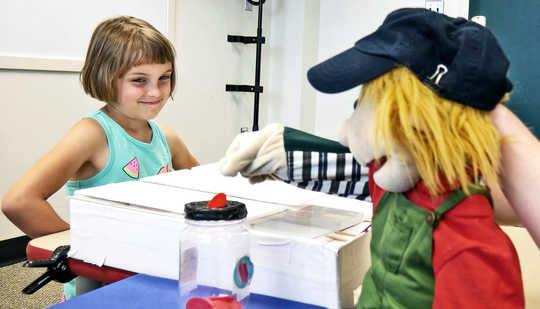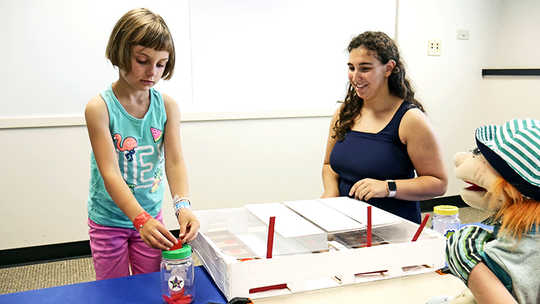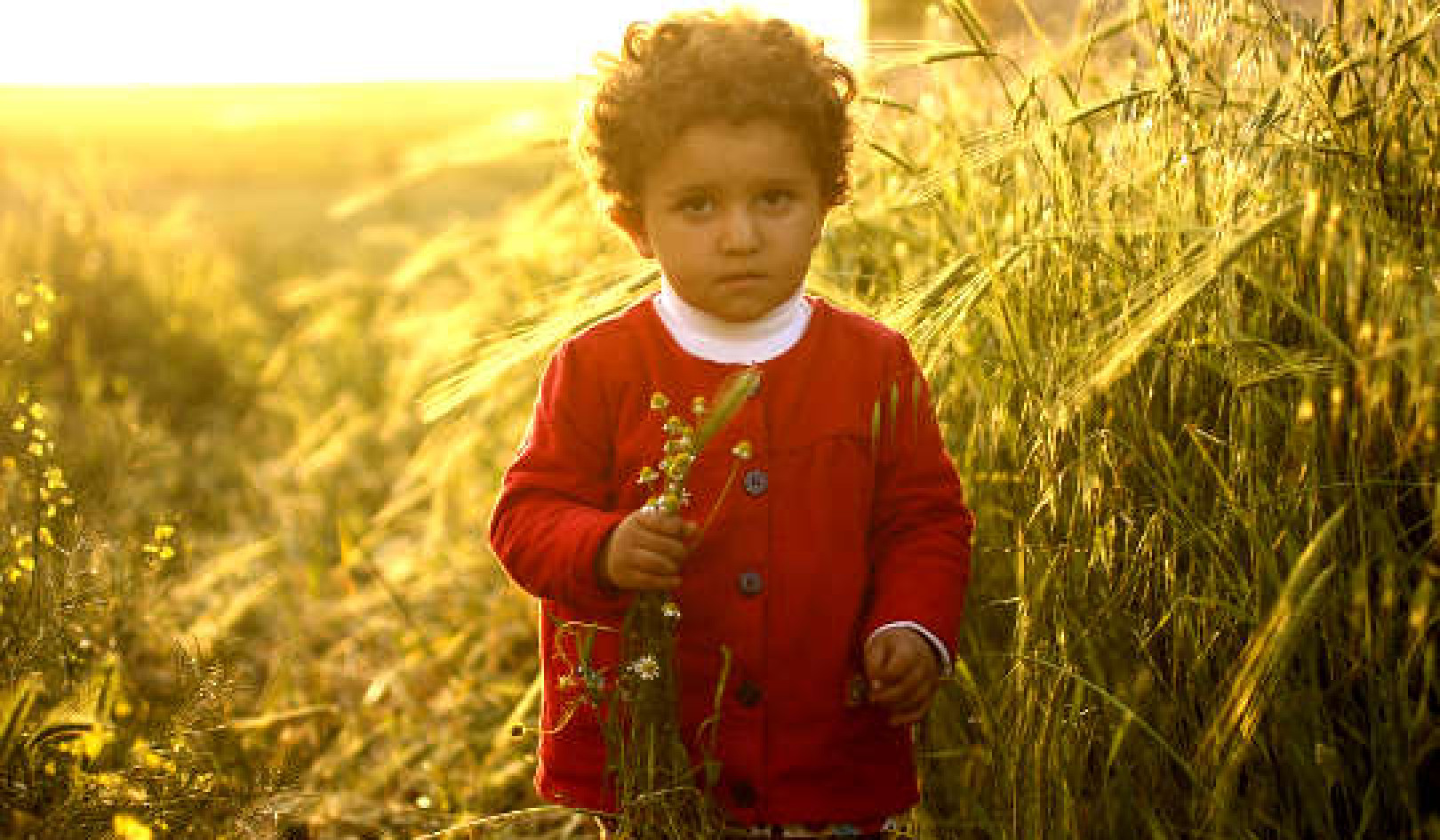
The puppet places several coins in its "bank" rather than sharing half of them with the girl, much to her dismay. (Credit: Sean Moore/Michigan News)
Kids can engage in complex economic exchanges involving judgements about trust, according to new research.
Adults often engage in mutually beneficial interactions—such as business transactions—that require trust that others will reciprocate. The new study shows this social behavior can develop as early as preschool.
Researchers conducted experiments with 4-year-olds and 6-year-olds to determine if their actions would benefit all parties involved.
The trust game
Whereas exchanges can result in larger returns for all parties, engaging in such exchanges also involve a “moral hazard” when there is no guarantee or external enforcement that social partners will return an initial investment. One experimental method that captures these critical components of economic exchange is the “trust game.”

A girl places coins in her “bank” during the “trust” experiment involving a puppet. (Credit: Sean Moore/Michigan News)
“We developed a child-friendly version of the trust game with real incentives to probe the developmental roots of economic trust,” says lead author Alexandra Rosati, an assistant professor of psychology and anthropology at the University of Michigan.
One experiment involves a puppeteer who uses puppets to play a coin game. The child, sitting opposite of the puppets at a table, could decide to either keep a coin or place it into an apparatus that would produce four coins for the puppet partner. Investment in the partner, therefore, increased the total amount of coins, but the child might end up with nothing unless the partner reciprocates.
Trust and investing in others
The results demonstrate that the children recognize opportunities to invest in others, says coauthor Felix Warneken, associate professor of psychology. Both age groups shared more resources with a partner in the trust game where reciprocation is possible, than in a sharing task measuring pure generosity.
“This shows that young children can rapidly recognize opportunities to invest in others for mutual benefit,” Warneken says.
Researchers also showed that the ability to detect cheaters emerges over a longer developmental period. Younger children were less successful than older children at investing only in a trustworthy partner who shared profits fairly over an untrustworthy puppet who kept all to the self.
Rosati notes that the two groups of children were highly accurate at identifying the untrustworthy partner, even though younger children did not adapt their behavior to account for this.
Overall, the study shows that this key economic behavior has roots early in development, she says.
“Young children are able to engage in complex economic exchanges involving judgments about interpersonal trust, despite not yet having mature capacities for future-oriented thinking,” Warneken says.
Older children, however, are more successful at dealing with the moral hazard of economic exchange, showing increasing sensitivity to appropriate investment partners, he says.
The study appears in the Proceedings of the Royal Society: B.
Additional coauthors are from Marquette University and Suffolk University.
Source: University of Michigan
Recommended Books: Finance & Careers
 The Procrastination Cure: 7 Steps To Stop Putting Life Off by Jeffery Combs.
The Procrastination Cure: 7 Steps To Stop Putting Life Off by Jeffery Combs.
Procrastination is an epidemic that can only be eliminated if the underlying causes are uncovered. Jeffery Combs, a recovering procrastinator himself, will help you overcome procrastination and achieve the life of your dreams based on his own experiences and research.
Click here for more info and/or to order this book on Amazon.
 Cracking the New Job Market: The 7 Rules for Getting Hired in Any Economy by R. William Holland Ph.D.
Cracking the New Job Market: The 7 Rules for Getting Hired in Any Economy by R. William Holland Ph.D.
The rules for finding professional work once seemed clear and unwavering: capture career highlights in a resume, practice answers to standard interview questions, and do lots of face-to-face networking. Cracking the New Job Market shows how these rules have changed and delivers new job-hunting strategies that actually work.
Click here for more info and/or to order this book on Amazon.
 Grasp the Solution: How to Find the Best Answers to Everyday Challenges by Chris Griffiths and (with) Melina Costi .
Grasp the Solution: How to Find the Best Answers to Everyday Challenges by Chris Griffiths and (with) Melina Costi .
Innovation distinguishes between a leader and a follower... Which do you want to be? GRASP The Solution is a refreshingly pragmatic and straight-talking guide to making decisions and solving problems creatively. If you've always thought creativity was all fluff and no substance, this book will make you think again...
Click here for more info and/or to order this book on Amazon.


























